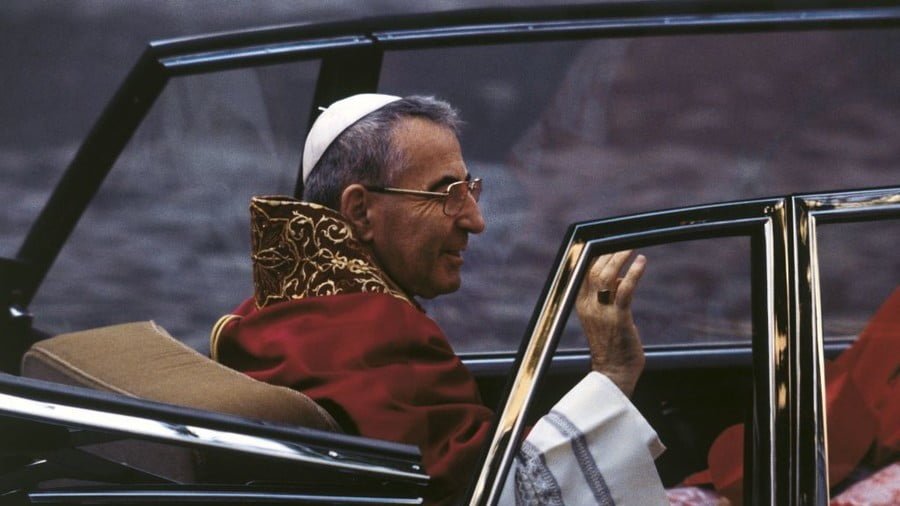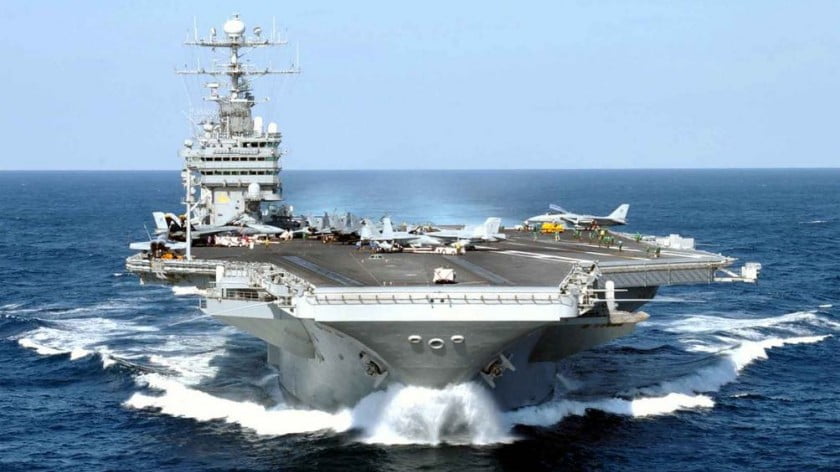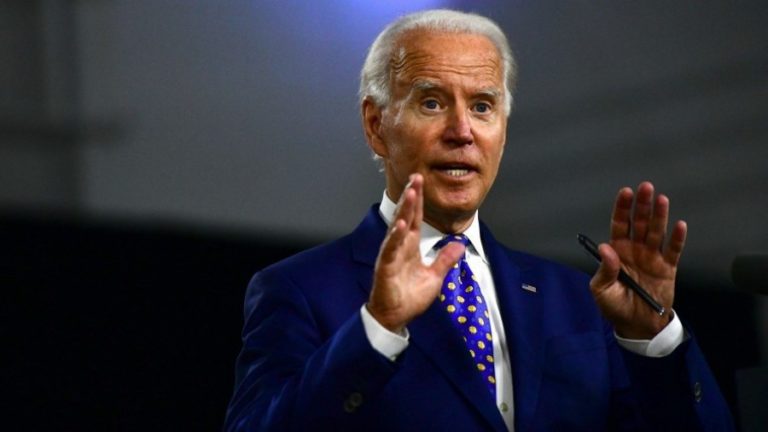The Struggle for Influence and Resources is Exacerbated in the Middle East
The Middle East with its continuous struggle of internal and external players for power and control over resources remains one of the most troubled regions on the planet. And this applies to rich countries such as Saudi Arabia and to the periphery: Yemen, Libya and Somalia, states that de facto are “former states”.
We will look at a few processes taking place there, based on material from experts of the Middle East Institute A. Bystrov, P. Riabov and Yu. Schelgovin.
A Conspiracy of Princes
The purge of government, intelligence and financial elite of Saudi Arabia, launched in the struggle for power by Crown Prince Mohammed bin Salman, is fully underway. Three hundred twenty people were called to the Supreme Committee in the fight against corruption from the start of the investigation. Some were sent to the Prosecutor General’s office, 159 persons were arrested. However the processes, initiated by the heir, come with big problems. Prince billionaire Al-Waleed bin Tatal, detained on suspicion of corruption, refused to go to the government-proposed pre-trial settlement and is ready to defend himself in an international court. He rejects the culpability and demands to bring in foreign audit companies to establish the sources of his income and resources, insisting on the investigation with the participation of independent experts and international jurisdictions.
Riyadh is facing an insurmountable obstacle: the arrested scions of the influential branches of the royal family realised that the time and the reaction of its foreign partners are working in its favour because from the very beginning the organisers of the campaign excluded the option of a judicial investigation, especially international. The evidence against the arrested is weak and can reveal information about the commercial activities of King Salman and his inner circle. In the end, the Saudi authorities reached an impasse. They need to collect and transmit to the treasury the confiscated “corrupt” money, thereby weakening the potential enemies of M. bin Salman. Thus the main goal of the whole campaign turns out to be not even a replenishment of the treasury, but the consent of the detainees on the transfer of all business channels in the US and the EU to him, which is also stalled.
According to Arab media reports, the former Minister of National Guard Prince Mutaib bin Abdullah bin Abdulaziz Al Saud and the head of the Royal Protocol to King Abdullah Muhammad al-Taberi agreed to the proposed terms. According to information, they transferred to the authorities more than a billion “misappropriated funds” and left the Ritz Carlton hotel, where they were detained. Prince Mutaib was one of the main targets of this campaign, but they were not able to fully convince him of the wrongness of his behaviour. What is listed in the treasury was nearly a billion dollars says it all. The Saudi authorities were saying that they are planning to receive from the detainees nearly 800 billion, and it is clear that it is unrealistic.
Mohammed bin Salman is clearly losing the momentum. Opponents of the regime are banding together for his compromise, including working through the lobby in the US and in the West in general. The representatives of the royal family branch of bin Tatal and bin Abdel are consolidating efforts in the organisation of the resistance against the Crown Prince. They carry out secret consultations with the clan head of the Sudairy Royal Family Ahmed bin Abdul Aziz, encouraging him to move as an alternative to M. bin Salman. Ahmed bin Abdel Aziz, was Minister of the Interior for 40 years and was removed from the direct line of succession in 2014. He was replaced in the position as Crown Prince at the time by Muqrin bin Abdulaziz. One tool of influence the ex-minister has at his disposal is the contacts among jihadist circles and the representatives of the radical clergy established during his work of the Interior Ministry. The latter is extremely dissatisfied with the actions of the young heir and some recently arrested. However, by far not all. But their impact on the radical circles cannot be overemphasised; these people oversee the charities of the kingdom, through which they maintain contact with Islamist circles worldwide. In the upper echelons of the KSA a linkage between the representatives of the main opposition branches of the Royal family in the persons of the inner circle of al-Walid bin Talal, bin Abdullah and the Sudairi family. Only time will tell who will win this battle. What is clear is that the power struggle in the KSA is not over and to predict its outcome is impossible so far.
Yemen After Saleh
The murder of ex-President Ali Abdallah Saleh simplified the situation in the country. In Yemen, after 15 years, the power that determined and complicated matters disappeared. A major mistake of the politicians actively involved in the “Yemeni revolution” was that Saleh was not eliminated from the very beginning. Although such an attempt was made, the former President lost a leg and an arm but survived. Everything we see in Yemen is in fact disintegrating, and was in large measure the handiwork of the late Saleh.
He took advantage of the strife in the ranks of the “United Opposition” and encouraged the strengthening of the Houthis, using them to punish his former allies of the party “Islah” and its Vice President Abdrabbuh Mansur Hadi. For this Saleh provided the Houthis missile arsenals, heavy equipment and finance, which he accumulated from the UAE’s accounts, and then transferred to Yemen. The ex-President stood for the “forced marches of the rebels” in Aden, which changed the course of history in the country. There were no forced marches from North to South of Houthis. An order was issued in his name for an uprising of the Republican Guard, standing garrisons from Taiz to Aden and military bases in its surrounding areas. The “lightning speed” of the march is connected with precisely this circumstance. Houthis themselves do not oppose the separation of Southern Yemen,
Saleh initiated the active KSA and UAE interference in the Yemeni conflict, provoking centrifugal tendencies in South Yemen. Riyadh, Abu Dhabi and the remaining Yemeni players supported the Houthis, until then in their struggle against the Islah party. The campaign in the south, provoked by Saleh, change the situation, foreshadowing the creation of the Arab coalition and protracted political, military and humanitarian crises. On this backdrop, Saleh planned to return to power as the sole stabilising force.
As for the future, Saleh’s departure means the collapse of the influence of his clan and party “General People’s Congress” (GPC) on the development of the situation in Yemen. All loyal units of the Republican Guard will disappear from the military balance of power, because there is no funding. They will go over to Ali Mohsen al-Ahmar or the Houthis, but will not be separate. The balance of power in the country is defined and this simplifies the situation. Now only the position of the Houthis and Iran defines the situation in the north. To expect the stratification among the Houthis is difficult because the “compromisers” wing is neutralised.
On other hand, South Yemen, under the protectorate of the UAE, de facto, stands apart. For Abu Dhabi, the control over ports on the shores of the Red Sea and Indian Ocean within the former South Yemen is important, as well as the creation in the north of counterweight forces, the equivalent of the Muslim Brotherhood, the party Islah. The UAE will not invade Sana’a.
Saudi Arabia has a different position: the monopolisation of power in the hands of pro-Iranian Houthis leaves Riyadh no alternatives to a forceful impact on the situation.
In this context it is not excluded that tribal Hashid militia will revive and Vice President Ali Mohsen al-Ahmar, in the absence of his half-brother and his children, becomes the only candidate as the head of Yemen (at least in the north) for the KSA, fortunately who at the time was designated by the Hashid sheikhs as successor to Saleh. However, time will tell how far will he be able to mobilise tribal resources. Abu Dhabi will not welcome this, where A.M. al-Ahmar, the leader of the military wing of Islah is preferred. It is approximately the same position of the “legitimate” president of the country A.M. Hadi, who is under the control of the KSA and has no influence in the country. So that in the medium term perspectives the main goal is the possibility of a military success of the al-Ahmar forces in the siege of Sana’a. If this does not happen in the next weeks, this means that the Houthis have succeeded in stabilising the situation and the conflict will once again become sluggish.
According to recent data, a picture emerges of collusion between Abu Dhabi and Saleh (the liaison was made by his son Ahmed, living in the UAE) in secret negotiations with the KSA. After they came to nothing (Riyadh decided to wait), the Emirati and Saleh went for broke. It was assumed that Saleh would mutiny and beat the Houthis from Sana’a and the coalition forces (the UAE) will support him, closing in on the capital. As the head of the “military council”, which was supposed to lead the capital garrison after the success of the rebellion and could claim supreme power in the country (at least in the north or part of the territory), was Saleh’s nephew, commanding the troops of the VNK Brigadier General Tareq Mohammed Abdullah Saleh (killed in Sana’a at the beginning of the failed rebellion). The UAE were planning to announce at the GCC summit in Kuwait about the success of the rebellion against the Houthis and require from its members formal support of the establishment in Sana’a the new authority.
Riyadh, on the one hand, would have welcomed the defeat of the Houthis, their marginalisation and blocking in Sa’dah. On the other, Saudis did not like the strengthening of the UAE in the north, despite the fact that they control South Yemen already. In addition, this scenario meant the oblivion of the main Saudi minion in Yemen, A.M. Hadi. The Saleh clan would do everything possible to keep Hadi away from the capital and disavow his authority. Riyadh would lose the possibility to influence the situation through “legitimate and officially recognised government of Yemen”. Hence, the KSA’s watchful passivity at the beginning of the rebellion. The kingdom facilitated the mutual weakening of the opponents, not interfering in the situation. This suggests that Riyadh is experiencing in Yemen a lack of support on the ground, which will determine for long the vague position of the KSA.
Battle for Somali Ports
Last November 13 the election of the head of the Somaliland enclave, according to experts, did not bring any serious changes to the alignment of internal political forces. Musa Bihi Abdi, the Kulmiye party candidate, became the President. Presently, he his busy settling relationships with key sponsors who provided him with financial support. They are the heads of Établissements Djama and Ominco Group, Omar Said and Abdurahman Mahmoud Bor respectively. They sponsored the President’s win in exchange for the promise to lower duties on imported food and consumer goods. With the head of Somcable Mohamed Saeed Guede, they will have to pay all of the monopoly of the telecommunications sector and a share in future contracts for the import of electricity.
Behing Abdi’s victory stands the UAE, attempting to consolidate and legalise deals on the acquisition and expansion of a former Soviet air and naval bases in Berbera. Abu Dhabi will most likely succeed. The new President is under the influence of the former first lady, wife of President Silanyo, Amina Weris Sheikh Mohamed Jirde. She is the main lobbyist behind the deal with the UAE, for which the Silanyo clan, in addition to cash, received for free a luxury villa in the UAE and lifelong insurance for services at the prestigious medical centre in the country. A revision of the status of the base would mean at a minimum the cancellation of benefits for the former President’s clan. The danger for the UAE is the position of the president of Somalia Mohamed Abdullahi Farmajo, who, relying on Saudi Arabia, initiated a review of the transaction in international arbitration. He will win the claim, as the Somaliland is a self-proclaimed government enclave that is not recognised by any country. Mogadishu can block not only the deal on Berbera, but also the expected delivery of the Hargeisa licenses for exploration extraction of minerals in the enclave.
Riyadh is attempting to reduce the UAE’s military presence in the Horn of Africa. The basis of the strategy of Abu Dhabi in the Indian Ocean region and the Red Sea is the construction of dozens of large and small military bases on the coasts, which will allow them to control not only the shipping logistics in this strategically important area, but also the ports. Any UAE initiatives on support of governments or regimes are tied with this strategy. Riyadh at first provoked a row between Djibouti and Abu Dhabi with the result that the UAE has abandoned plans to place in this country their naval base (their place was taken by the Saudis). Now the KSA is trying to do the same against the Berbers.
In this situation, Hargeisa is forced to compromise with Mogadishu and tries to achieve this through Ethiopia. Addis-Ababa always stood for Somaliland, treating it as a buffer in countering the penetration into Ethiopia of the Islamist Al-Shabab. The advances of President Silanyo with the UAE in the transaction on Berbera alarm the Ethiopians. The Emirati, allies of Egypt, have tense relations with Addis-Ababa because of the construction of the dam “Revival” on the Blue Nile. Due to the strengthening of the UAE in Berbera, the emergence of the Egyptian Air Force near the Ethiopian borders becomes a reality. Organising consultations between Mogadishu and Hargeisa, Addis-Ababa is trying to reformat the relationships with the new President Abdi and strengthen the influence over him, and through a compromise agreement between Mogadishu and Hargeisa to limit the ability of the UAE to use the base in Berbera against Ethiopia. But to achieve the cancellation of the transaction, taking into account the interest of the strong clans in the enclave, Ethiopians are unlikely to succeed.
Where is the Money, Rome?
On November 30, tribal Toubou militias in the southern region of Libya of Fezzan took without a fight under its protection the airport of the administrative centre of the Sabha region. The event has far-reaching consequences for the stability not only here but also for the possibility of intensification of illegal migration channels into Europe. The Toubou took under control the airport of the Fezzan administrative centre in order to block this. This is a clear signal to the Minister of Internal Affairs of Italy Marco Minetti. The Toubou remind him about the promises to pay reparation costs for the sacrifice of the vendetta between the Toubou and the Awlad Suleiman tribes. Rome promised “blood money” to the latter, but did not give any.
Minetti wasted a year in creating a joint “border guard” of the representatives of the two tribes to patrol borders of Libya in the south and block the illegal migration flows. To conclude this agreement, the Italians had several times convened meetings with the participation of tribal representatives in Rome, promised the leaders medical treatment and training of their family members in the Apennines and the payment of the “blood money”. So Italy, with the minister unable to explain this to the Senate, did not allocated the money in the budget. The minister did not search for other financial sources, because of the actions of tribal groups in Fezzan the number of illegal migrants decreased. Instead, he began to lobby for the opening of appropriate financing from the EU budget from the programme to combat illegal migration.
However, all this worries very little the tribes in Fezzan. They will not allow the Minister of Internal Affairs of Italy to forget the promise. It is possible that migrants soon will once again flow through Libya into Europe. Minetti’s action not only violate the agreements (Treaty of Rome, the Interior Minister affixed his signature on it), but also most negatively affect the reputation of the structures of the Prime Minister of the National Consensus Government (PNC) Faiza Saraga supported by the Italians. His appointee Abdusalam Kaiman was the main guarantor of the implementation of the terms of the treaty with Tripoli, and there, on specially opened accounts of the Central Bank, compensations were supposed to be placed, provided by the Italians. A native of Fezzan, Kaiman risks to pay for the delay with his head.
All this is happening on the backdrop of France’s President Emmanuel Macron announcement of the plan to combat the slave trade in Libya with the execution of a limited military-police operation with funding from the EU. The struggle in the EU over money between Paris and Rome is old. First, Rome tried to fit in the EU budget the initiative of creating the border guards in Fezzan. This attempt was blocked by Paris, who did not want to strengthen its competitor (the French are betting on Field Marshal Khalifa Khaftar). The Italians are trying to thwart Macron’s plans to gather under the “operations against the slave trade” banner all the power of the European Union. Brussels has also not responded to the French President’s initiative, thanks to the efforts of the coordinator of foreign policy activities of the EU Federica Mogherini. In the end, the funding for the tribal militias has been postponed.
The shortfall affected not only the Toubou and Awlad Suleiman, but other pro-Italian groups in Sabha as well. Unrest broke out with Chadian and Sudanese mercenaries within the group members of the Gaddafi tribe of Nasser bin Jarad. During which Jarad was wounded and five Chadians were killed. The reason was the demand for payment of salaries for the year. The Italians were the culprits, first by removing bin Jarad’s units from Field Marshal Khaftar (disrupting the seizure of the airport in Sabha this past summer), and then leaving him without the payroll. Jarad has deserted a year ago, believing the promises of the Italians. Now he counts on Gaddafi’s son Seif al-Islam. Nostalgia for the era of the Colonel in Fezzan is becoming obvious, as in western Libya, where S. al-Islam is in a state of honourable captivity by the Zintan clan. If the Italians will not be able to find in the near future funding for their projects in Fezzan, this will trigger the transfer of key regions of Libya under the wing of Khaftar and his backers in Paris. This reminds of the struggle of France and Italy for Africa during the colonial era.
By Evgeny Satanovsky
Source: VPK via South Front







